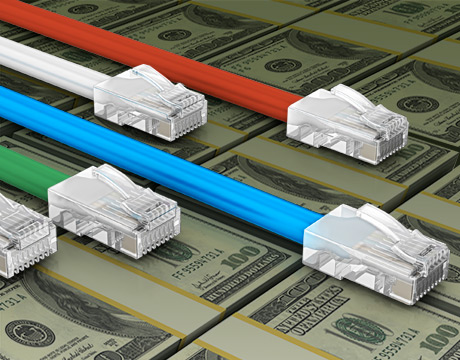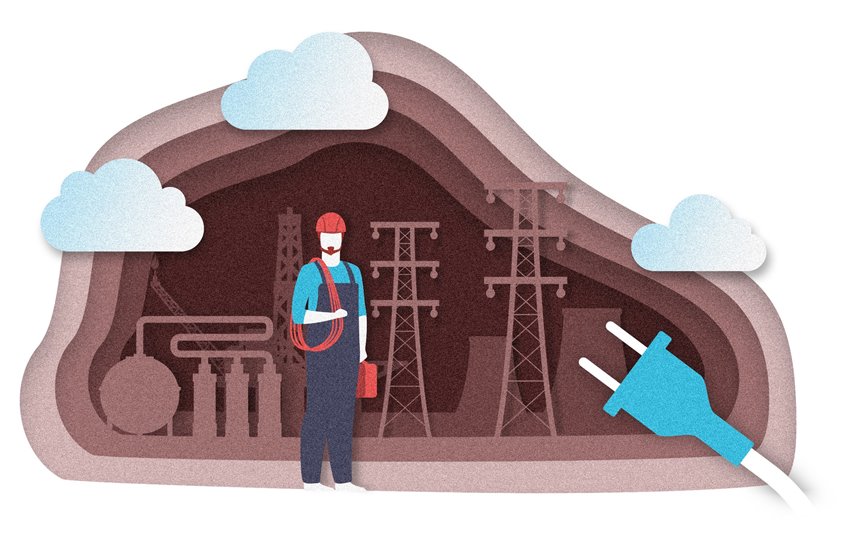10 Arguments For and Against Net Neutrality, Part 1
10 Arguments For and Against Net Neutrality, Part 1


The internet was born free, without restrictions and regulation. Then broadband providers starting exerting control through steps like slowing down video streams, especially with bandwidth hog Netflix dominating internet traffic.
Users were upset at the slower video streams, and the government stepped in to take control of the internet from broadband providers.Net neutrality today is associated with a broad set of rules established in 2015 stopping broadband providers from blocking selected content, or slowing down internet speeds for customers. But those rules will be repealed starting April 23 by the Republican-dominated U.S. Federal Communications Commission.
The worry is that a repeal will put control of the internet back in the hands of broadband providers. Opponents of net neutrality argue the internet should not be regulated as it will stall innovation and investment in next-generation technologies.
The net neutrality debate today is mostly around video, but could pivot to IoT, which will increase its share of internet traffic in the future. The number of connected IoT devices is expected to reach 125 billion by 2030, according to IHS, and the repeal could impact companies involved in smart medical devices, autonomous cars, drones, connected factories and smart city projects. Here are five arguments for and five against the repeal that engineers need to know, especially in the context of IoT.
FOR
1) Prioritize IoT communications: With the repeal, Internet providers will be able to be prioritize internet traffic. For example, communication between autonomous cars or life-saving medical devices could be prioritized and put on the fast lane, while non-essential traffic could be placed with regular internet communications. This could also benefit other IoT-based services. "Wearables, delivery drones, and driverless cars are among the 'killer apps' that require a lot of real-time data and would benefit from preferential treatment in areas with strained network capacity," PwC wrote in a research report.
2) More investment and new services: Broadband providers have been reluctant to invest in infrastructure or develop innovative services since net neutrality regulations went into effect in 2015, says George Ford, chief economist at the Phoenix Center for Advanced Legal and Economic Public Policy Studies. Broadband providers’ capital expenditure declined to $76 billion [B] in 2016 from the decade-high $78.4 billion in 2014, according to USTelecom.
Telecom companies can recoup investments quicker by developing innovative premium services around security, artificial intelligence or even specialized IoT traffic like tracking. Beyond provisioning traffic, a lot of computing services for IoT like image recognition can be provided on the edge equipment of telecom and network providers. However, regulations and red tape could discourage those investments as the return will be slower, Ford says.
3) Fast track factory and infrastructure upgrades: Manufacturers are increasingly connected to the internet, and a robust telecom infrastructure is a must to keep factories up to date, Robyn Boerstling, vice president of infrastructure, innovation and human resources policy of National Association of Manufacturers, told ASME.
"Continued investment in networks, led by the private sector, allow for improvements and upgrades that keep economic growth moving in a positive direction and give the U.S. a competitive advantage. A regulatory regime that holds back the development and deployment of the latest manufacturing technology would be a step in the wrong direction,” Boerstling says.
4) Limited regulation: The Internet evolved with time, first as a platform for people to communicate, then for e-commerce, and now as a harbinger for emerging technologies like IoT, artificial intelligence, blockchain and cloud. Companies like AT&T – which hasn’t taken a stand on net neutrality – has argued that regulations could stall development of new internet technologies.
"In the very near future, technological advances like self-driving cars, remote surgery and augmented reality will demand even greater performance from the internet,” AT&T says. “Without predictable rules for how the internet works, it will be difficult to meet the demands of these new technology advances.”
5) 5G development: Government interference will hinder the development of 5G, which will drive autonomous cars, robots and haptic feedback-enabled drones, says networking equipment maker Ericsson in a filing with the FCC. "Inflexible rules could undermine the diverse 5G use cases and innovation enabled by quality-of-service distinctions and the availability of different levels of connectivity that could be made available as part of broadband Internet access offerings," Ericsson says. 5G is a melting pot of wireless technologies that will also allow sensors and machines to directly talk over long distances, and net neutrality’s repeal could pave a path for companies to separate critical data traffic that may be important to factory safety, as an example.
Find out why people are against the repeal in Part 2 of “10 Arguments For and Against Net Neutrality.”




